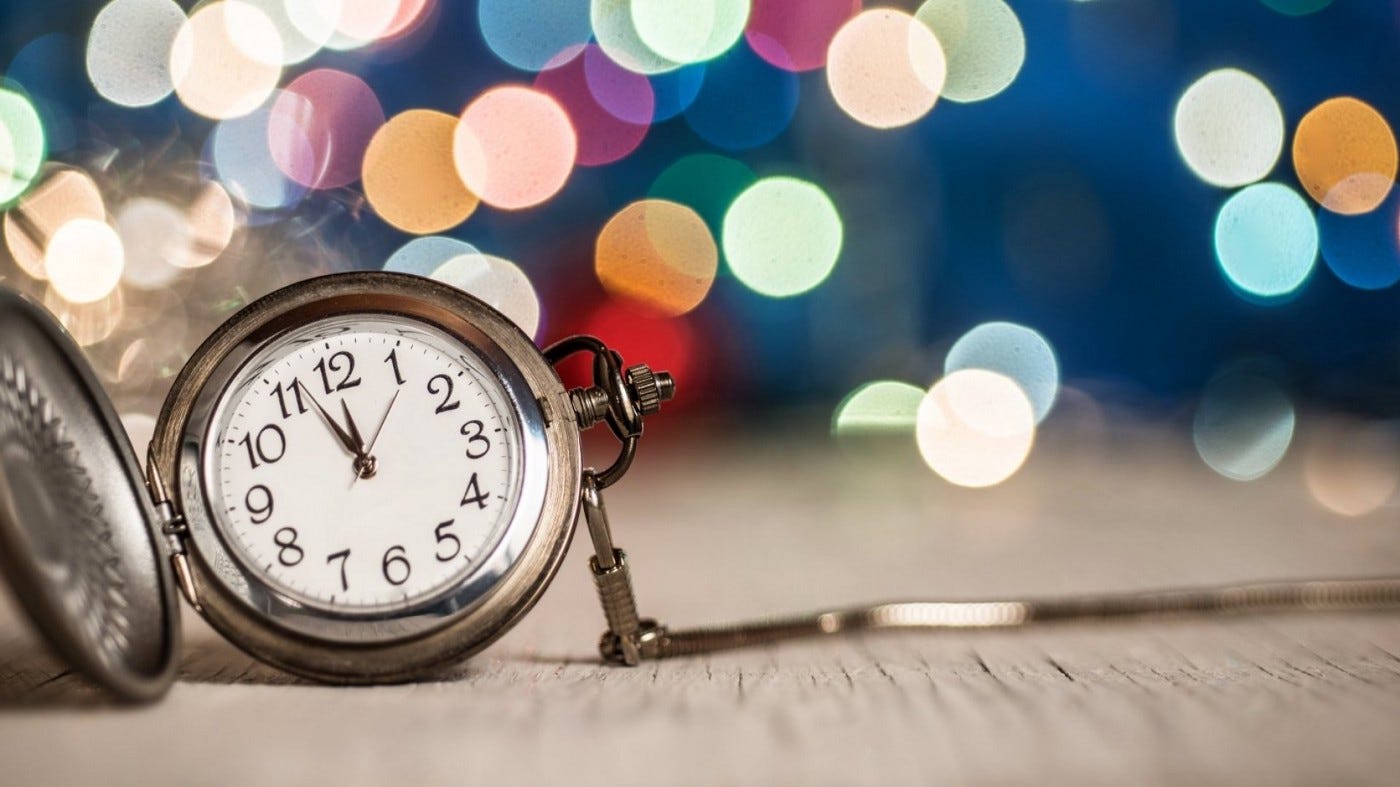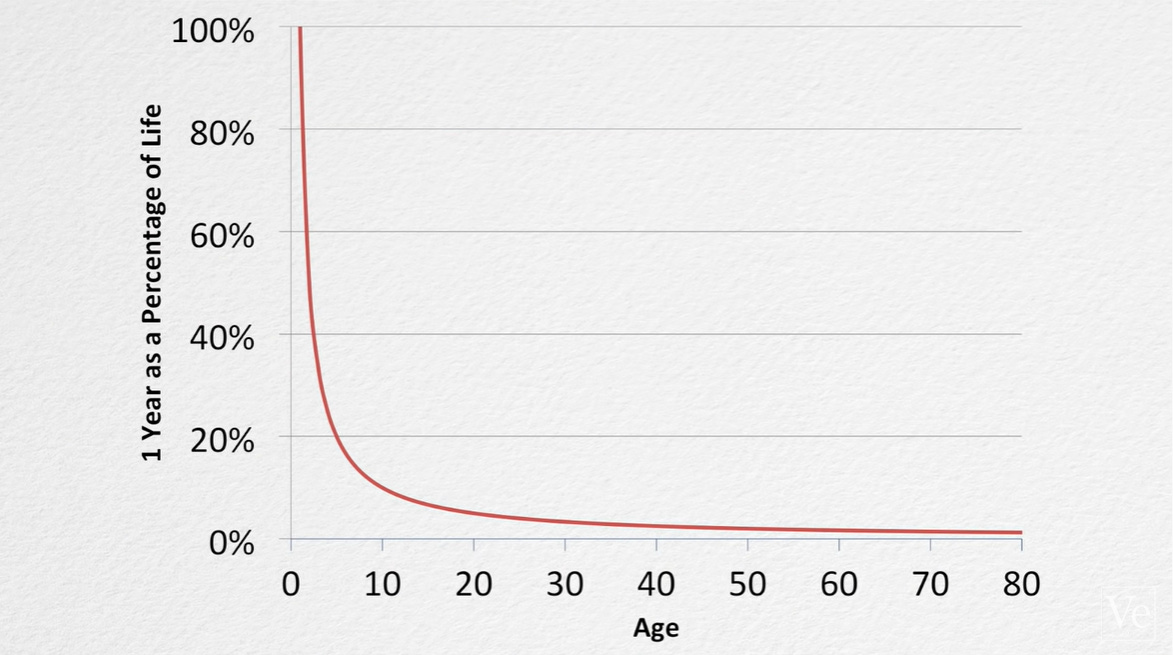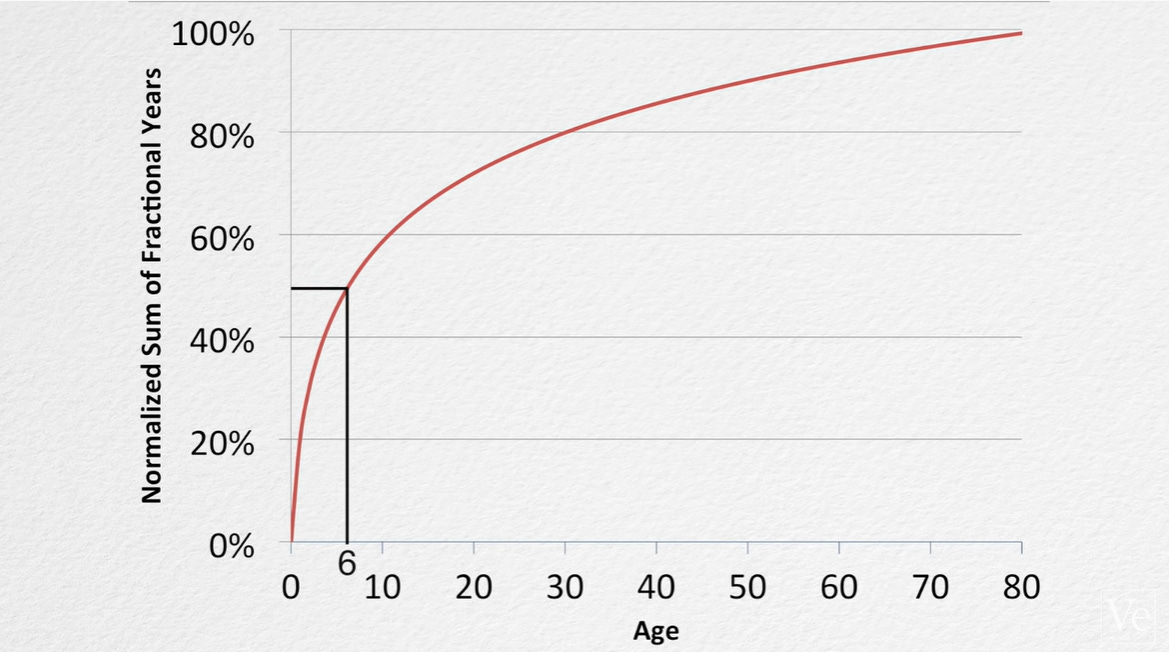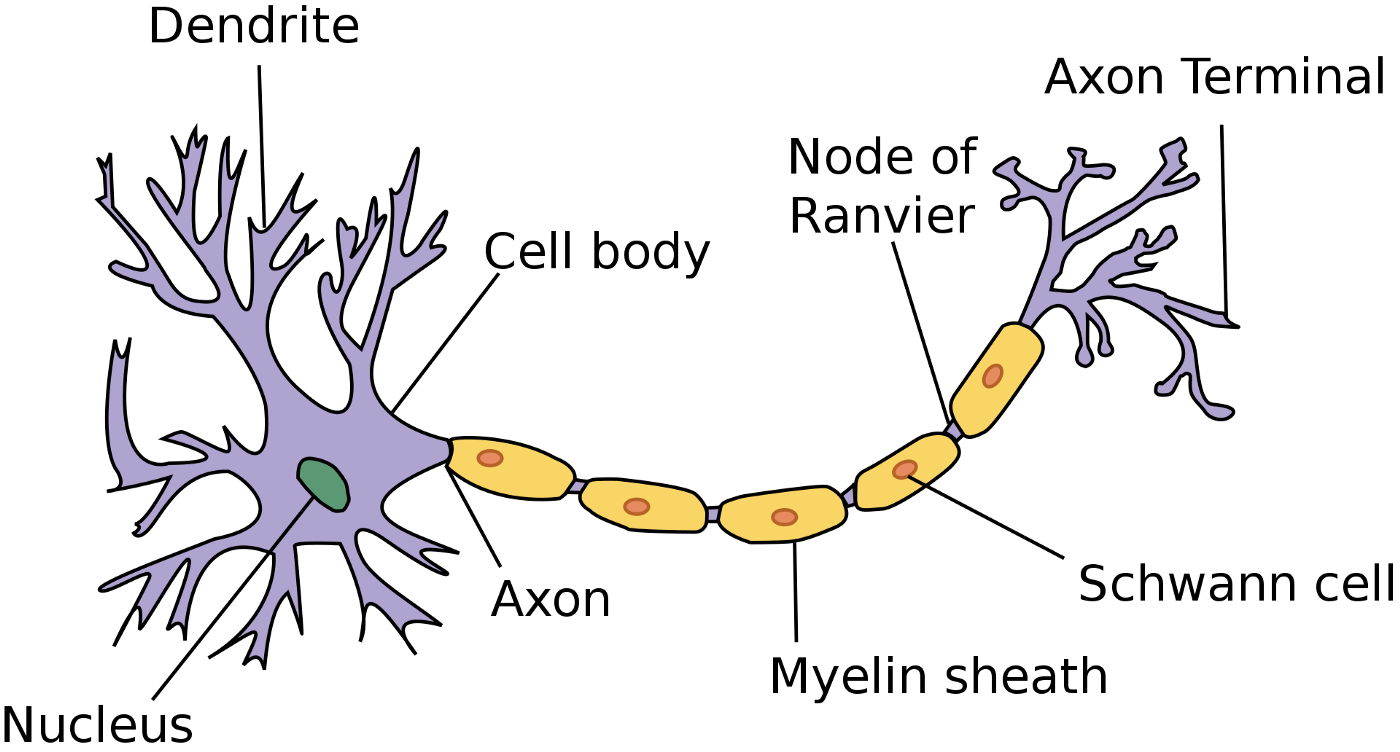Time appears to go faster with increasing age and you are not the only one feeling this phenomenon, we all do. I want you to remember your childhood for a second, remember how an hour you waited for your favorite cartoon show to stream on the television felt like an eternity. However, now place your past 2 years, do you feel like it just went past in a blink of an eye?
Is it because you indulged in something so much that you didn’t feel the time passed? or is there something going on that science could explain?
There are some explanations for this.
The first explanation is quite simple. It is based on the simple fact that for a 10-year-old, one year represents 10% of their entire life but the same for a 50-year-old, it is less than 2% of their recallable life. This explains those long days in school during childhood and rapidly fleeting days that most adults experience.
This is the graph that forms. But if we plot the area under the curve, we find out that we nearly experience half of the total by age 6.
But is it how our brain perceives time? Let’s see another better explanation.
Professor Adrian Bejan in the year 2019 put forward an argument based on the physics of neural signal processing. Bejan hypothesizes that, over time, the rate at which we process visual information slows down, and this is what makes the time ‘speed up’ as we grow older.
To get a better grasp of this, I want you to learn about neurons.
Neurons are nerve cells that carry electrical impulses. There are about 86 billion neurons in the human brain and all of them are connected to one another. If you will, think of them as a network of highways in your brain where information travels.
Bejan argues that as we age, the size and complexity of the network of neurons in our brain increases as well as the neurons accumulate damage that resists the flow of electrical impulses. These factors slow down the rate at which our brain processes signals.
Slower signal processing means perceiving fewer ‘frames-per-second’ which explains why more actual time passes between the perception of each new mental image. In contrast, when we are young, each second of actual time is packed with more mental images like a slow-motion camera, it captures higher ‘frames-per-second’.
Chronoception, or the sense of time, is not like one of the standard five senses. It evolved early and is one of the fundamental functions of our brain. It has no specialized receptor cells and seems to be not localized in only one part of the brain.
However, it doesn’t mean the brain can figure out time accurately. You surely have experienced that time passes fast if you are engrossed in your work and slow when you are bored.
It could be because of repetition or novelty, if things are more novel to you your brain needs more time to process those things.
In this video, a series of pictures will be shown for x seconds. Let me know which of these images were of longer seconds.
In the above video, all of the pictures were of the same seconds i.e 0.25. However, it is probable that most of the viewers answered Dog. As it was unpredictable to your brain it took more time to process that information than the repeating image of the Cat.
Now, it makes sense. For a child, there is everything new to them. They are figuring out the rules of the world and therefore when they look back, they have memories of a lot of things they have learned. However, when you are old and look back a year, you are probably doing approximately the same thing and so it feels like a year went bypassed like a flash.
For you to feel that time has passed slower, just seek novelty. So when you look back, you’d have created a lot of memories and will not feel the time has passed fast.






